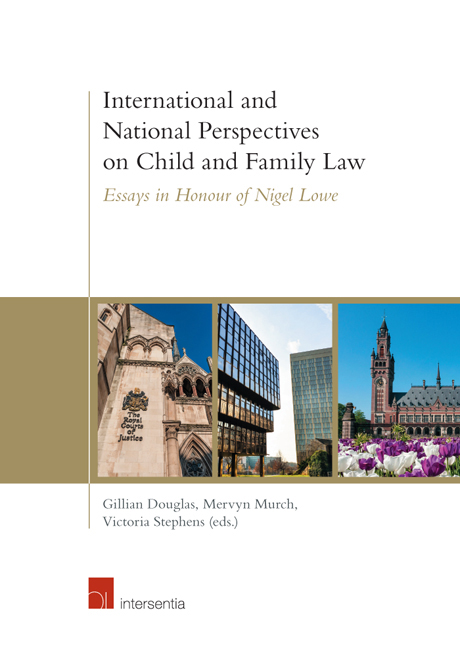Book contents
- Frontmatter
- Foreword
- Acknowledgements
- Contents
- List of Cases
- List of Contributors
- Introduction: Nigel Vaughan Lowe: An Appreciation
- Part I Family and Child Law in England and Wales
- The Supreme Court and Family Law
- The Development of Parent–Child Relationships in Family Law: The Cascade of Change
- Commitment-Based Parenting: Parental Responsibility in English Law
- Rights Children Should Not Have
- Empirical Research on Adoption of Children from Care
- Pathways to Adoption: From Long and Winding Road to Obstacle Course?
- Child Abuse and Public Inquiry Methodologies
- Lowe and the Inherent Jurisdiction
- Wards of Court
- Part II International Family Law
- Part III The Future for Family and Child Law
Empirical Research on Adoption of Children from Care
from Part I - Family and Child Law in England and Wales
Published online by Cambridge University Press: 12 October 2018
- Frontmatter
- Foreword
- Acknowledgements
- Contents
- List of Cases
- List of Contributors
- Introduction: Nigel Vaughan Lowe: An Appreciation
- Part I Family and Child Law in England and Wales
- The Supreme Court and Family Law
- The Development of Parent–Child Relationships in Family Law: The Cascade of Change
- Commitment-Based Parenting: Parental Responsibility in English Law
- Rights Children Should Not Have
- Empirical Research on Adoption of Children from Care
- Pathways to Adoption: From Long and Winding Road to Obstacle Course?
- Child Abuse and Public Inquiry Methodologies
- Lowe and the Inherent Jurisdiction
- Wards of Court
- Part II International Family Law
- Part III The Future for Family and Child Law
Summary
INTRODUCTION
Adoption of children is unarguably one of the ‘great debates’ in family law, an adoption order having been described by Stephen Cretney as ‘ irrevocable’, ‘dramatic’ and ‘different in kind from other legal processes’. This debate cannot avoid questions of social policy and conceptions of family identity. It has also maintained a high political profile in England and Wales in recent years. Accordingly, there has been a stream of socio-legal research into adoption systems.
Nigel Lowe and Mervyn Murch led a team based at CardiffUniversity and their studies make up a substantial proportion of, and a significant contribution to, the body of research that has built up in the past 20 years. They drew on records and the voices of families and professionals who were directly involved and affected. This chapter will review these studies and place them in the context of recent and ongoing research questions. The timeline will first be set out, followed by a section each on five reports by the Lowe and Murch team between 1988 and 2002. Comprehensive legislative reform took place 15 years ago, in no small part contributed to by findings from these studies. Policy and judicial interpretation have undergone continual changes and scrutiny; yet messages from these earlier investigations can still be cited as meaningful today.
A BRIEF HISTORY OF ADOPTION LAW AND POLICY
Family law about children is traditionally divided between private (involving family members in dispute) and public (where the state intervenes to protect children). The Children Act 1989, coming into effect in October 1991, reformed and consolidated private and public family law about children in England and Wales, applying the welfare principle, that the child's welfare was the court's paramount consideration in coming to decisions about their upbringing. However, adoption law (which crosses the private/public boundary) was omitted and was still, in the 1990s, governed by the Adoption Act 1976, which had been draft ed when adoption was still based on what Lowe described as a ‘gift /donation model’. This had been an era when adoption in the UK was still regarded as a private solution to address the social problems of illegitimacy and infertility, and to normalise the child ‘ s status within a family.
- Type
- Chapter
- Information
- International and National Perspectives on Child and Family LawEssays in Honour of Nigel Lowe, pp. 65 - 80Publisher: IntersentiaPrint publication year: 2018



